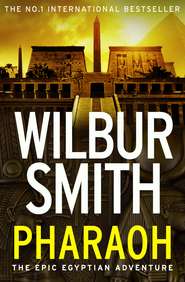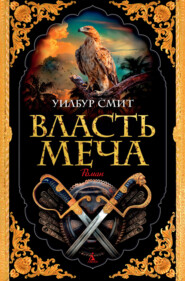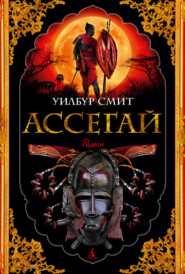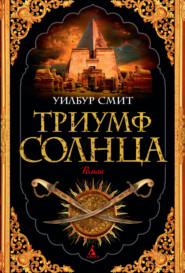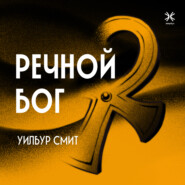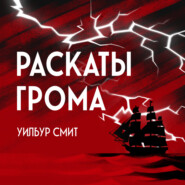По всем вопросам обращайтесь на: info@litportal.ru
(©) 2003-2024.
✖
Desert God
Автор
Год написания книги
2018
Настройки чтения
Размер шрифта
Высота строк
Поля
Then we dragged the single boat that I had selected through the shallow waters to the eastern bank of the lagoon, nearest the fort. From there I needed every single one of my men to manhandle it across the dry ground to the river channel. I ordered them to attach the anchor ropes that we had salvaged from the two scuttled boats to the bows of this one that we had retrieved.
With a hundred men hauling on each rope the keel of the boat acted as a skid, and the hull slid readily enough over the papyrus stalks which were flattened beneath its weight. Nevertheless we had almost half a league of dry ground to cover before we reached the main channel of the river. By that time it was close to midnight and the waxing gibbous moon was high in the sky.
I allowed the men a short time to rest on the river-bank, and to don their armour and to wolf down a cold meal. Then with muffled oars and carrying fifty men at each crossing we began to ferry them over the channel. When every one of them was across, I divided our little force into two groups.
The larger group of 150 men I sent with Zaras to creep through the reed beds until they were as close to the main gate of the fort as possible without being in danger of discovery by the sentries. They were to conceal themselves there until they received my signal.
Before we parted I explained to Zaras what I planned. I would row up the channel with a crew of fifty men. My intention was to attack and destroy the pontoon bridge which connected the main enemy camp to the island on which the treasury stood. Before we parted company I embraced Zaras briefly, and I repeated my orders to him so that there could be no misunderstanding.
Then I sent him away, while I clambered on board the waiting galley and gave the order to my rowers to ply the oars. The current was swift and strong, but my men heaved away lustily and, hugging the bank of the channel furthest from the fort, we made good speed upstream. Soon we could see the limewashed tower of the fort gleaming in the moonlight. The sight encouraged my oarsmen to still greater effort.
We came around the final bend in the channel and the fort lay before us. The three triremes were as I had last seen them, moored against the stone wharf. The moonlight was bright enough for me to make out that two of them were still riding low in the water; still fully laden with their cargoes of bullion. The third trireme was standing a little higher. Much of her cargo must have been unloaded. Nevertheless I estimated that she still had more than half her load of treasure chests in her holds.
There were no Cretan sentries anywhere in sight. There were no lights showing aboard any of the great ships. However, there was a fire glowing at one end of the wharf and there were torches burning in brackets on each side of the gates of the fort.
I lifted the bronze helmet from my head and placed it on my lap. Then I adjusted the bright yellow cloth that was knotted around my throat to mask the lower half of my face. This is an extraordinary type of cloth known as silk. It is extremely rare and worth a hundred times its own weight in silver. It comes from a land at the edge of the world, where it is spun not by men but by worms. It is possessed of magical powers. It can turn away evil spells and such diseases as the plague and the Yellow Flowers. However, now I used it simply to hide my face.
My features are so distinctive that there is always a strong possibility that they will be recognized by either friend or foe. Beauty comes at a price. After that of Pharaoh himself my face is probably the best known in the civilized world, by which I mean Egypt. When I replaced my helmet I was faceless in the ranks of faceless men.
As we rowed closer to the wharf the torch flames threw just sufficient flickering light for me to make out the blanket-wrapped forms of the sentries crouching close to the warmth of their watch fires.
It was obvious to me that the Cretan officers had not wished to spend the night in the crowded fort with all their men. At nightfall they must have gone back across the bridge with the majority of their men to the comforts of their elaborate camp on the further bank of the channel. This suited my purpose well enough.
Still keeping as far from the wharf as the channel allowed we rowed quietly past the moored galleys and the looming walls of the fort. As we left those behind I could make out ahead of us the row of longboats that formed the pontoon bridge strung out across the channel.
We rowed on up the main channel until I judged we were at least two hundred yards upstream of the pontoon bridge. Then I turned our boat across the current and I aimed our bows at the centre of the long narrow pontoon bridge. I gave a quiet order to the rowers to stop heaving and to ship their oars, and we let the current run us down on the centre of the bridge.
At the last moment I put the helm over and we turned broadside to the bridge and came to rest with our starboard side pressed by the current hard against the causeway.
My men were ready for this. Two small groups of three men each jumped from the bows and stern of our ship and made her fast to the bridge. The rest of them armed with axes and swords swarmed over the ship’s side on to the pontoons. Without waiting for further orders they began to chop at the ropes that secured the line of longboats to each other.
The sounds of the blows had certainly carried across the channel to the camp on the far bank, for almost at once we heard the Cretan drums start to beat the call to arms. Pandemonium broke out in the camp; the shouted orders of the sergeants, the clatter and clash of arms on shields, the rattle of armour and the clamour of the drums carried back to us. Then the flare of light as the torches were lit and the reflection of their flames sparkled off the polished metal of shields and breastplates.
A long column of trotting infantry burst out of the mouth of the passageway that led from the palisade wall of the camp to the head of the pontoon bridge. Four abreast the Cretans charged out on to the narrow bridge, and it heaved and rocked under the stamping of their metal-studded sandals.
Swiftly the enemy front rank bore down upon our wrecking team, which was revealed by the glare of the torches. Still the mooring ropes between the pontoons resisted the axe-blows of my men. When only fifty paces separated them I heard one of the officers who led the charge shout an order. I did not understand the language, but the meaning was immediately clear.
Without checking their rush along the causeway the leading Cretan infantrymen heaved back and then hurled a volley of spears. The heavy missiles fell amongst the team of my men who were still hacking at the bindings that held together the line of longboats. I saw a javelin strike one of my fellows in the back and transfix him so that the point emerged a good yard from his chest. He toppled over the side of the longboat on which he was balancing and was sucked down into the black waters. None of his comrades even glanced up from their task. Grimly they continued swinging their axes at the hempen ropes that bound the pontoons together.
I heard a sharp report as a rope parted, and then the grinding and crackling of timbers of the hulls bearing against each other as more of the lines holding the longboats together gave way.
Then at last the bridge was cleaved asunder. But the two disjointed halves were still held together by our own ship which was strung between them. I found myself screaming wildly at my axe-men to come back on board. Of course I was not troubled for my own safety. My only concern was for the safety of my brave lads.
The torrent of armoured Cretans came on unchecked over the pontoons. They rushed at us in a solid phalanx, bellowing their challenges and hurling their javelins. My own men were scrambling back into our little boat and cowering down as the missiles slammed into the timbers of our hull.
Now I was shouting for someone to sever the ropes that still locked our vessel into the centre of the bridge. In the uproar my orders were drowned out. I could not make myself heard. I grabbed an axe from one of my men who was crouching in the bilges and ran to the bows.
A Cretan came at me down the causeway. Both of us reached the bows at the same time. He had thrown his javelin and was struggling to unsheathe his sword which seemed to be jammed in its scabbard. It came free as we met each other.
I could see that he was grinning under his helmet. He thought that he had me at his mercy and that he was about to kill me. He drew back his sword and aimed a thrust at my chest, but I had seen his eyes move, signalling his intention, so I was able to anticipate the blow. I twisted my body and the point of his sword flew under my armpit. I locked my arm over his elbow.
Now I had him fully extended. He tried to pull free, but the causeway heaved under him, throwing him off balance. At that critical moment I released the lock I had on his sword-arm. He was unprepared for that, and he tottered backwards, extending both arms towards me as he tried to regain his balance.
I swung my axe, aiming at the only part of his body that was not covered with metal: the wrist of his sword-hand. I was also unbalanced in the rocking and heaving boat, so it was not a perfect stroke. It did not sever his sword-hand cleanly, as I intended. But it slashed down to the bone on the inside of his wrist. I heard the tendons pop as they parted. His fingers opened involuntarily and the sword fell from them and rattled on the planks of the bridge. He reeled backwards into one of his companions who was crowding up behind him. Clinging to each other the two of them went over the side of the bridge and hit the surface of the water with a tall splash. The weight of their armour dragged them under immediately.
The axe was still in my hands and the two mooring lines that secured the bows of our ship to the pontoon bridge were stretched in front of me so tightly that the water was spurting out of the twists of the rope. I lifted the axe above my head and then swung down, aiming it at the thicker of the two ropes, putting all my weight and power into this stroke. The rope parted with a snap like a bowstring. Our boat canted over sharply as the full weight was thrown on to the single, thinner rope. I swung again and that rope jumped apart, twisting and unravelling in mid-air. The bows of our boat bobbed up as the weight and drag were taken off them, and we swung free across the current.
The effect on the bridge was far more dramatic. Each of the segments of the bridge was still firmly attached to their moorings on the river-banks. However, in the middle of the channel they were no longer bound together and the current snatched them apart swiftly. I watched as the dense pack of Cretans was thrown about by the causeway bobbing and lunging wildly under their feet.
Their shifting weight intensified the instability of the floating pontoons. Men in heavy armour lost their balance and staggered about drunkenly, barging into each other, throwing each other overboard.
I watched in horror as one of the pontoons capsized and a score of men were hurled over the side. Within minutes the greater part of the Cretan horde was struggling in the dark waters and drowning like rats in the bottom of a well.
What made it more tragic for me was that these were not even our enemies; all this destruction I had deliberately engineered to trick them into becoming our allies. It gave me very little consolation to know that I had done this for my very Egypt and for my Pharaoh. I was appalled by the consequences of my actions.
Then, with an enormous effort of will, I thrust aside my guilt and remorse. I knew what had been done could not be undone. I tried to put the drowned men out of my mind and thought instead about my own people and the losses that we had suffered. I forced myself to turn away, and pushed my way back to where I cut the line that held us attached. I was shouting at my crew, taking out my anger on them. Roaring at them to take up their oars again, shoving them back to the rowing benches, kicking and slapping those who hesitated in bewilderment.
At last I had the steering-oar in my hands again and the men were beginning to pull in unison. I put the helm over and steered us back towards the stone wharf under the main gate of the fort where the treasure ships were moored.
I jumped from our little boat as soon as the bows touched the stone steps of the wharf, and Zaras was there to meet me, sword in hand and panting with exertion but grinning like an idiot.
‘We have captured all three of the treasure ships, and even the fort is ours!’ he told me as he pointed with his bloodstained blade at the gates of the fort, which stood wide open. ‘The uproar you created at the pontoon bridge was a fine distraction. We cut down the guards at the fort while they were still watching your performance, and totally unaware of our existence. I don’t think that any of them escaped, but even if they have they won’t get very far.’ He paused to catch his breath and then demanded, ‘How did it go with you at the bridge, Taita?’ I was pleased to hear that even in the heat of battle and victory he was remembering to speak Hyksosian.
‘The bridge is down and half the enemy were thrown into the river and drowned,’ I told him curtly, and then I turned to Akemi, who had run up when he saw me come ashore. ‘Take command of this boat and keep a dozen men with you to row.’ I pointed to the cluster of small unmanned craft anchored in the basin formed by the sweep of the river. ‘Take with you torches and fire-pots and burn those boats, before the Cretans can get their hands on them and use them to ferry their men across to attack us again tonight.’
‘At once, my lord,’ Akemi replied.
‘Keep only the largest of them,’ I went on. ‘That big lugger at the end of the line. Don’t burn that one. Bring it back here and we will leave it tied up at the wharf when we depart.’
Both Akemi and Zaras looked at me askance; however, it was Zaras who dared to question my orders. ‘Leave it for the Cretans? Why would we want to do that?’
‘We want to do that so the senior Cretan officers are able to sail back to Crete with all despatch and warn their king of the treachery of his Hyksos allies. Even the mighty Minos of Crete will be sorely hurt by the loss of five hundred lakhs of his silver. When he receives the news, he will thirst for King Beon’s blood.’
I waited on the wharf and watched Akemi and his crew pull away from the wharf, heading back into the basin of the river. I saw him transfer four of his men into the big lugger. They set a jib sail and brought her back to the wharf below where I stood.
Out in the basin Akemi stood in the bows of our little boat. His men rowed him along the line of anchored boats and Akemi hurled a flaming torch into each of them as he passed. Only when all of them were burning fiercely was I satisfied. I went back to find Zaras in the confusion.
‘Bring these men with you, and come with me,’ I told him, and I ran down the stone wharf to where the nearest Cretan trireme was moored. ‘I want you to take command of this ship, Zaras. But I will sail with you.’
‘Of course, master,’ he answered. ‘Some of my men are already aboard her.’
‘Dilbar will captain that one.’ I pointed at the second trireme. ‘And Akemi will take the third Minoan treasure ship.’
‘As you command, master.’ It seemed that Zaras had promoted me from plain Taita to master. However, he was still sufficiently familiar with me to ask impudent questions. This he did immediately.
‘Once we are out in the open sea, in which direction will we sail? Will we head east for Sumeria or west for the Mauretanian coast?’ Then he even condescended to offer me a little fatherly advice. ‘We have allies in both those countries. In the east there is King Nimrod, the ruler of the Land of the Two Rivers. In the west we have a treaty with King Shan Daki of Anfa in Mauretania. Which of them will it be, Taita?’
I did not reply to him immediately. Instead I asked my own question. ‘Tell me, Zaras, which king or ruler in the entire world would you trust with a treasure of five hundred lakhs of silver?’






